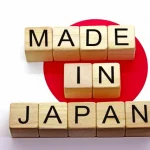This gets a bit technical.
When you search on Google, the links labeled “sponsored” at the top are paid ads that we pay Google to show. It works like this: you choose a keyword when placing an ad, and your ad appears when someone searches for that keyword. You get charged when someone clicks on your ad. For instance, for our company, we might use keywords related to our business like “foreign language website creation” or “overseas web marketing.” You can also specify your company name, product names, or service names.
However, sometimes our ads appear when people search for a competitor’s keywords, and vice versa. For example, if someone searches for “Mahana Corporation,” ads from rival companies might show up. This happens because Google recognizes terms related to the competitor and shows ads from companies in the same field, like ours in foreign language website creation.
This can be a positive for us since we can attract customers looking for our competitors. However, it’s frustrating for our competitors because potential customers searching for them might end up clicking on our ads instead.
In Japan, it’s common for companies in this situation to contact their competitors directly and ask them to exclude their company name as a keyword, so their ads won’t appear. It’s not mandatory, but it’s usually accepted as a gesture to avoid conflict.
However, this practice is almost unheard of overseas. In Europe and the United States, where competition is fierce, it’s considered unlikely that competitors would agree to such a request. In these regions, business practices are more assertive and less accommodating compared to Japan.
This cultural difference can sometimes make it challenging for us to explain our approach to overseas customers.




